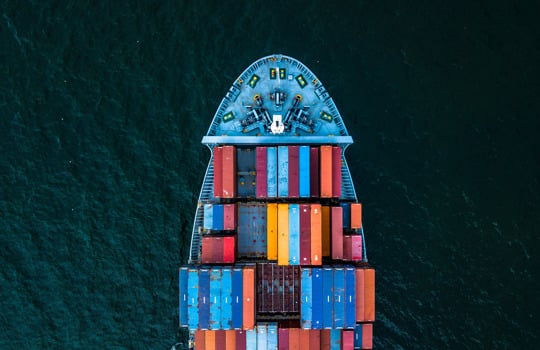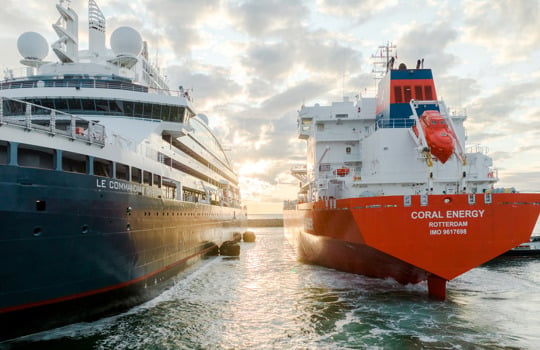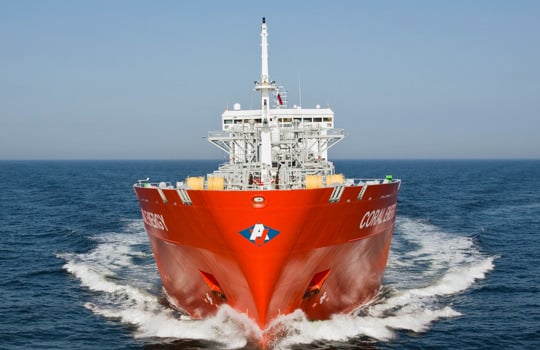LNG as a competitive alternative as a marine fuel
There is a growing demand for alternative maritime fuels to reduce the environmental impact of maritime transport. Maritime shipping contributes up to 3% of the world's total CO2 emissions and 10–15% of global sulfur oxides (SOx) and nitrogen oxides (NOx). Meanwhile, 90% of global cargo is transported by sea.
Consequently, the maritime industry faces increased pressure to transition to low-emission fuels. The IMO and EU have set goals and targets for reducing greenhouse gas emissions, but also customers are demanding more sustainable transportation to meet their emission reduction goals.
LNG and renewable liquefied gas for ships
Addressing the tightening emission regulation goals and emission targets of the customers, ship owners are investing in new vessels with engines that can run on alternative fuels. Liquefied natural gas (LNG) as a ship’s fuel is currently the only way to effectively lower maritime emissions and it has been used as a fuel in maritime transport for decades. Most of the new LNG vessels are dual fuel, meaning they can use both LNG and conventional fuel or electricity.
With an LNG-powered ship, shipping companies can easily switch to renewable liquefied biogas (LBG) or synthetic LNG without making modifications or installations, further reducing emissions.
What we deliver
- Trusted and experienced provider of LNG and LBG for ships
- More than 1000 successful and safe bunkering operations in the Nordics and ARA region
- Strong presence in the Baltic Sea and ARA-region
- Flexible delivery solutions and bunkering services
- Bunkering and feedering vessels for ship-to-ship bunkering
- Trailers for truck-to-ship bunkering
- Future proofing solutions: LNG and renewable methane (LBG/bio-LNG, e-LNG) as marine fuel
Benefits of LNG as a marine fuel
With liquefied natural gas, LNG, shipping companies can operate freely in sulfur emission control areas (SECA’s). Switching to LNG means complete removal of sulfur oxides (SOx) and particles, and reduction of nitrogen oxides (NOx) emissions of up to 85 percent. LNG reduces CO2 emissions by at least 20 percent. With LNG as a marine fuel, shipping industry can reduce emissions already today.
As a ship fuel, LNG is interchangeable with renewable LBG (liquefied biogas, also called bio-LNG), which produces up to 90% less carbon dioxide emissions than conventional fuel. In the future, there will be renewable synthetic LNG (e-LNG) available which is chemically identical to LNG and LBG. The potential of renewable LBG and e-LNG is significant. The Nordic countries alone could produce over 400 TWh of these renewable fuels, an amount nearly equivalent to the total energy currently used for refueling ships across the EU.
There is excellent availability of liquefied gas and a well-developed infrastructure for distributing the fuel. Since both LNG and LBG consist of methane, companies can switch to, switch between, or blend the fuels. With liquefied gas as a fuel, you are future-proof.
Services for shipping companies
In addition to the delivery solutions we offer, our portfolio management services help customers source liquefied gas at a competitive price and make informed EU ETS allowance purchasing decisions.
What is more, our future proofing solutions include sourcing of renewable liquefied gas and green shipping on demand -service.
Get to know our services for shipping companies
Contact us for more information on LNG as a marine fuel




